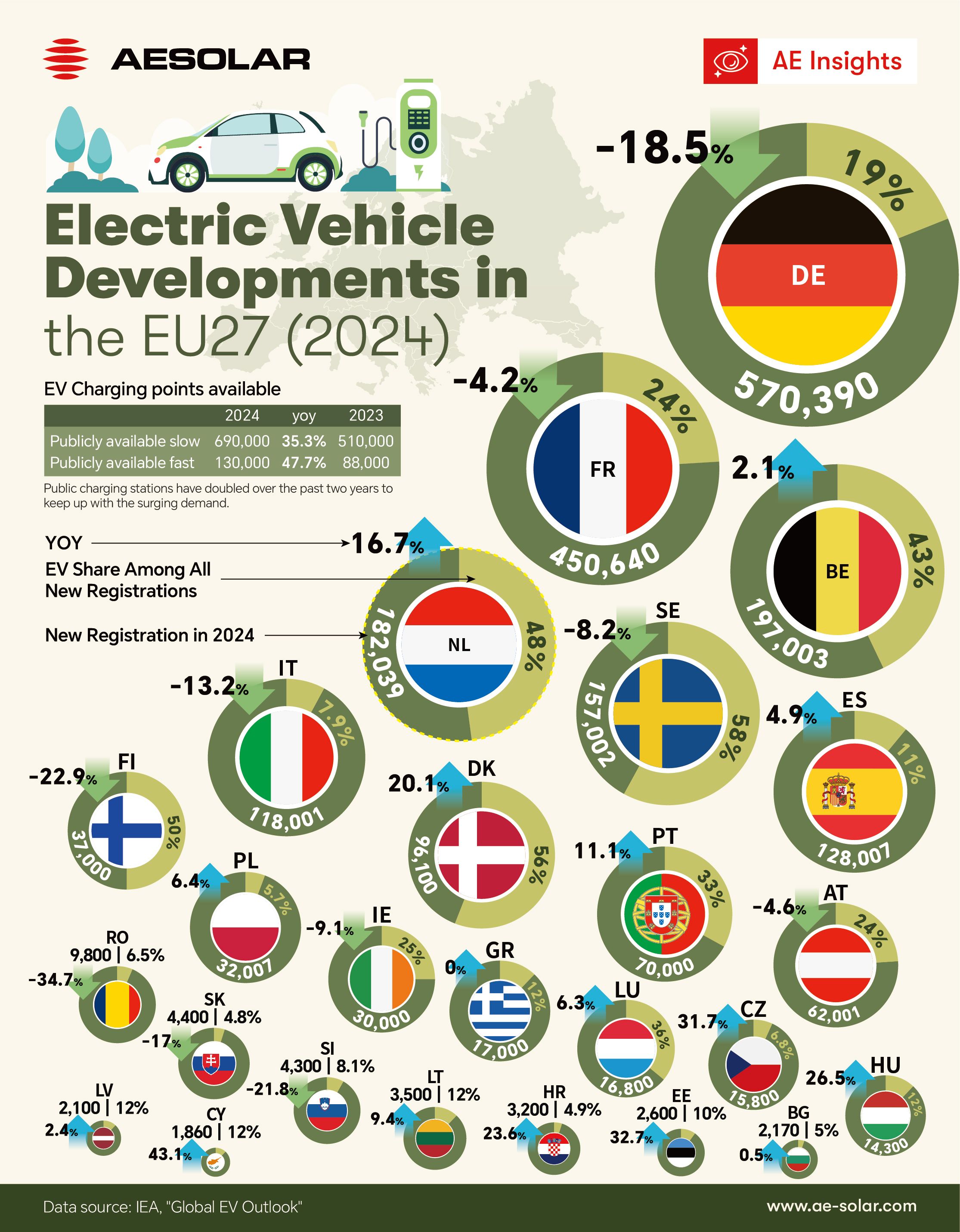
Electric vehicle adoption across the European Union is advancing at scale. In 2024, the EU27 registered more than 2.3 million new electric cars, representing 23% of all new passenger car sales. This reflects continued growth compared to 2023, when registrations stood at around 2.1 million (19% share).
Some of the largest markets, such as Germany and France, recorded year-on-year declines in 2024 (–18.5% and –4.2%, respectively). These shifts were largely influenced by policy and subsidy adjustments. However, growth in countries like Czechia (+31.7%), Cyprus (+43.1%), and Croatia (+23.6%) more than offset these declines, keeping the EU as a whole on an upward trajectory. Overall, adoption remains robust, with multiple markets already above 50% EV share (Sweden, Denmark, Finland, Netherlands).
Charging infrastructure continues to expand in line with this demand. At the end of 2024, Europe operated 820,000 publicly available charging points, up from 598,000 in 2023. This includes 130,000 fast chargers, almost double the figure from 2022. In other words, public charging stations have doubled within two years, a clear signal that the ecosystem is scaling up to meet surging EV penetration.
For consumers, businesses, and municipalities, the challenge is no longer only the purchase of EVs, but also ensuring reliable and sustainable charging access. This is where solar-integrated infrastructure becomes essential. AESOLAR’s Horizon carport modules, certified by Germany’s DIBt, feature 8% light transparency and a Class A fire rating, combining architectural durability with proven safety. By integrating on-site renewable generation directly into parking infrastructure, Horizon supports vehicle charging capacity while reducing strain on public networks, lowering operational costs, and offering climate-resilient mobility solutions for Europe’s expanding EV market.
The EU’s long-term objective remains clear: a full phase-out of combustion engine cars by 2035. With EV uptake accelerating, the parallel growth in charging demand presents new opportunities for solar to become an integral part of Europe’s transport and energy transition.
Discover how AESOLAR solutions can support your EV infrastructure needs: HERE
